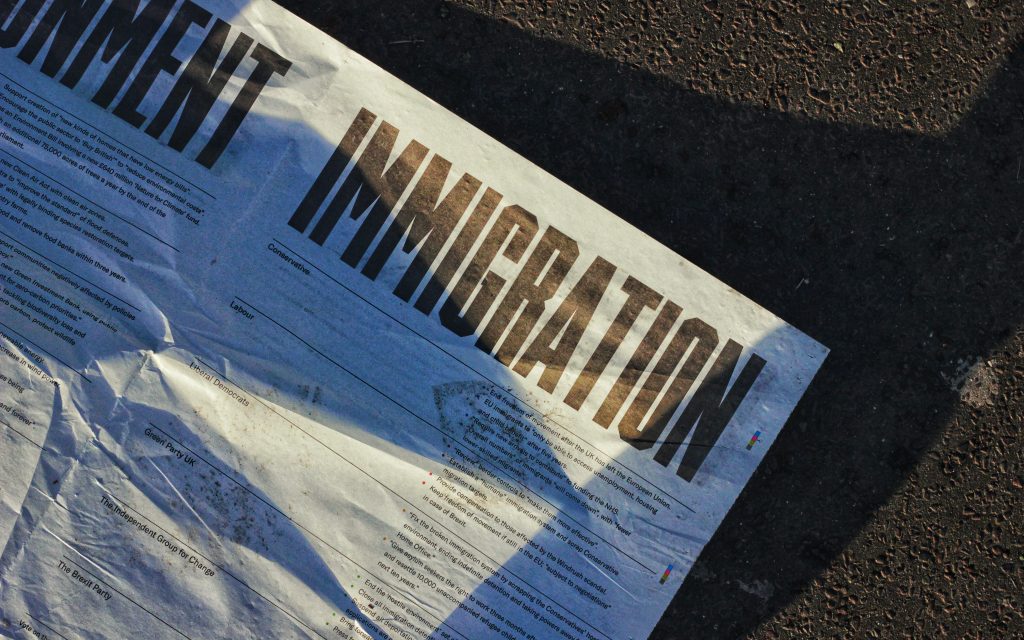 Migration
Migration 
Today we’ve published a discussion paper looking at the future immigration system post-Brexit. In this article Lucy Stone asks who should decide who has the right to live, work, study or seek protection in Wales?
On 31 December 2020, free movement will end causing one of the biggest changes in the UK’s immigration system in decades. Back in October, we hosted a migration symposium with stakeholders from across Wales and experts in immigration policy to discuss these changes. From the significant contributions made at this symposium, today we have published a paper that discusses the possibilities of life after free movement and the options available to ensure that the future immigration system works for Wales.
Why does Wales need migration?
As we’ve stated before, Wales needs migration to maintain and grow it’s population, especially since Wales has a projected decline in working age population paired with an increase in the population of retirement age. Wales also needs migration economically. Many sectors in Wales relies on non-UK citizens, especially EU citizens, in their workforce, including manufacturing, the meat packing industry, tourism, hospitality, social care, and the NHS. To some extent Welsh universities also rely on students from outside the UK. International students are a good income stream for universities in Wales and help to sustain some of their courses. Lastly, some Welsh cities, towns and villages rely on migration to keep some local amenities open. What happens to the local pub, shops, and schools in areas with high numbers of EU migrants if migration falls and if EU citizens leave?
Immigration policy
Immigration policy is reserved to the UK Government and not is devolved. It is clearly the intention of the UK Government to keep it that way by recently rejecting proposals to have regional variations in immigration policy for different parts of the UK, including Wales. However, Welsh Government and other devolved administrations recognise the benefits of having some regional variation in the future immigration system. While there is no recognition in the Immigration White Paper of the potential for regional differentiation, we think there is still an opening in Wales and the UK for a wider discussion about who decides who has the right to live, work, study and seek protection in Wales.
Who should decide who has the right to live in Wales?
When talking to stakeholders at the migration symposium there was an extremely positive reaction to Wales having regional variations in the new immigration policy. There was a general consensus that Wales has specific requirements for immigration (highlighted above) some of which are not recognised in a UK-wide immigration system. But what could regional variations look like and who should make and manage them?
Well, regional variations can range from small variations such as a different salary threshold for certain visas, or a Shortage Occupation List for Wales, to larger variations, including different visa requirements for different migrants, for example, students or families. As for who should make and manage them, most stakeholders wanted some regional variations and some devolved powers within a UK-wide immigration policy.
However, one issue with regional variations within a UK immigration system is that it relies on good relationships between the Welsh Government and the UK Government. However, there was a strong view among stakeholders that the Welsh Government was not and continues not to be listened to by the UK Government, and is not included in the UK debate on immigration because it is not a devolved matter. This raises serious questions about how the Welsh Government is going to challenge the UK Government proposals to ensure that the needs of Wales are heard and met.
Open the debate
What we want from this paper is for Wales to start talking about whether there is a case for regional variations giving Wales more power over migration, and if there is, who should decide what variations and how should these variations be managed?
With the end of free movement, the immigration system will change. Yet there is currently very little discussion around this in Wales. This needs to change, and Wales needs to discuss immigration in a way that it has never done before. This paper sets out some key questions that need to be discussed and opens the debate around immigration in Wales and what options Wales has going forward. With the UK Government holding a 12-month consultation on the Immigration White Paper, now is the time for Wales to influence future immigration policy to ensure that the immigration system is fair, transparent and balanced for all.
To read the full report click here.
Lucy Stone is Policy and Research Officer at the Bevan Foundation.


